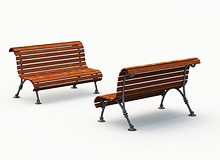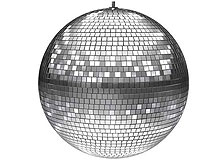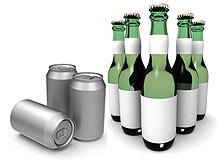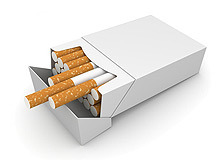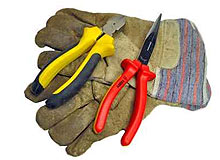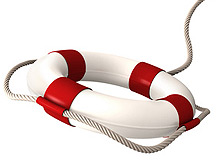The Ministry of Economics, Labor and Social Policy, which is responsible for this question, informs us that the long-term employment of children under the age of 16 is prohibited under Article 65 Paragraph 3 of the Constitution. Permissible forms and types of employment are determined by law.
Part 9 of the Labor Code deals with questions relating to the employment of adolescent workers (Articles 190 ff). According to the Labor Code, an adolescent is a person who is greater than 16 but less than 18 years of age. The employment of persons under the age of 16 is prohibited.
At the same time, it should be stressed that, in accordance with the Labor Code, employment is defined as the performance of work based on an employment contract, appointment, election or nomination (Article 2). This information therefore encompasses provisions relating to work based on the aforementioned principles, i.e. work performed within the context of an employment relation. Provisions governing work performed based on civil law contracts (e.g. contracts for works and services, fee contracts) can be found in the Civil Code and the Ministry of Justice is responsible for their interpretation.
According to the provisions of the Labor Code, employment may only be extended to adolescents who have completed high school and who present a note from a physician stating that this type of work is not hazardous to their health. Adolescents with no professional qualifications may only be hired for vocational training purposes. The principles and conditions of vocational training and the principles of compensation for adolescents during this period are defined in the Ordinance of the Council of Ministers on Vocational Training of Minors and their Compensation of 28 May 1996 (Official Journal No. 60, Item 278 with amendments). Detailed procedures for the conclusion and termination of employment contracts for vocational training are determined by the provisions of Articles 194 through 196 of the Labor Code. In light of the purpose of this study, it appears necessary to discuss these rules in greater detail. The most important rules for the purposes of this study are those governing the employment of minors for purposes other than vocational training.
Other than employment for vocational training purposes, the Labor Code allows for the employment of adolescents for light work based on an employment contract. The rules for such employment relations are defined in Article 200 and the ensuing Articles of the Labor Code. Under those provisions, light work may not pose a hazard to the life, health and physical and mental development of the adolescent. It also must not interfere with the adolescent's compulsory education. The employment compiles a list of light work with the permission of a physician who practices labor medicine. This list must be approved by the responsible labor inspector. The list of light work may not include work which is prohibited by Ordinance of the Council of Ministers of 1 December 1990 (Official Journal No. 85 Item 5000 with amendments). The list of light work is determined by the employer in the work rules. Employers who are not required to adopt work rules place the list of light work in a separate legal act. The employer is obligated to acquaint the adolescent with the list of light work before the work begins.
Pursuant to Article 200 of the Labor Code, the employer determines the total hours and the division of the hours to be worked by adolescents who are employed for light work. However, the weekly learning hours evident from the lesson plan or school schedule must be maintained.
The working hours of adolescents during the school year may not exceed 12 hours a week. On days when the adolescent takes part in instructional units, the workload may not be greater than 2 hours. Adolescents may not work more than 7 hours a day and 35 hours a week during their vacation from school.
Adolescents under the age of 16 years may not work more than 6 hours a day. The time limits designated above also apply if the adolescent is employed by more than one employer. Before an employment relation can be entered into, the employer is obligated to obtain from the adolescent a statement regarding the latter's employment or non-employment by other employers.
All adolescent employees who perform light work must undergo prior examinations before they can be employed, as well as routine examinations during the course of their employment, regardless of whether they were employed for the purpose of vocational training or for another reason.
The working hours of adolescent employees are determined in a specific way. The working hours of an adolescent worker may not exceed 8 hours a day. Adolescents may not work overtime or nights. For adolescents, "nights" are considered to be the hours between 10:00 PM and 6:00 AM. The work break, which includes the night hours, may be no less than 14 uninterrupted hours. Adolescents have the right to 48 hours of uninterrupted rest each week, including Sundays.
On 1 January 2004, the Act of 14 November 2003 amending the Labor Code and other laws took effect (Official Journal No. 213, Item 1081), under which a new Article, Article 304, was adopted into the Labor Code. This provision imposes restrictions on child labor and gainful activity by children up to and including the age of 16. This provision relates to work and other gainful activity which are not performed based on an employment contract, i.e. work which is not performed within the context of an employment relation.
Under this statute, children under the age of 16 may work only for institutions performing activities in the cultural, athletic, advertising and artistic spheres. It is also necessary to obtain the consent of the parent, legal guardian and labor inspector. The competent labor inspector is to issue a permit on the application of the institution. The inspector may refuse to issue a permit if performance of the work or gainful activity represents a hazard to the life, health or physical and mental development of the child, or if it interferes with the child's compulsory education.
The following is to be attached to the application:
-written consent from the parent or legal guardian that the child is allowed to perform the work or gainful activity;
-an opinion from a psychological/pedagogical advisor finding no objections to performance of the work or gainful activity by the child;
-a note from a physician allowing the child to perform the work or gainful activity.
With respect to the compulsory education of children during the period in which they are working are exercising another gainful activity, an evaluation must be obtained from the responsible director of the school which the child is attending.
The permit should include:
- personal information about the child and the legal guardian or representative;
- designation of the institution which is exercising the activity provided for in § 1;
- designation of the type of work or other gainful activity which may be performed by the child;
- designation of the time frame during which the child may perform the work or other gainful activity;
- designation of the daily workload for the work or other gainful activity;
- other information which may be needed for the welfare of the child or based on the type and character of the work and the conditions of the work or gainful activity.
The permit is to be revoked by the competent labor inspector on the application of the parent or legal guardian. The inspector is authorized to revoke the permit ex officio if it is found that the conditions under which the child is working do not conform to the conditions defined in the permit.
Article 304 of the Labor Code will remain in effect through 1 May 2004, i.e. until Poland's accession to the EU.


